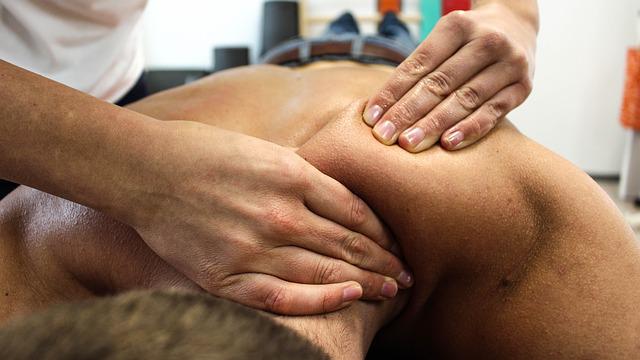
A physiotherapist is a health care professional who works with patients to help them improve their movement, manage their pain and recover from injuries. Physiotherapists use a variety of techniques, including exercises and massages, to help their patients achieve their goals.
Physiotherapists can work with people of all ages, from infants to the elderly. They often work with patients who have conditions such as arthritis, cerebral palsy, stroke, or multiple sclerosis. Physiotherapy can also help people recover from injuries, such as a broken bones, torn ligament, tendons and muscles.
In addition to helping their patients recover from illness or injury, physiotherapists also work to prevent injuries from occurring in the first place. They may design exercise programs for people who are at risk of developing conditions such as osteoporosis or heart disease. They may also teach patients how to use proper body mechanics to avoid injuries.
So can a physiotherapist fix your trapped nerve? The short answer is yes, but it's important we understand what a trapped nerve actually is:
What is a trapped nerve?
A "trapped nerve" happens when one of your nerves gets compressed by one of the structures in your body, usually a muscle, either directly or indirectly. Your nerves have space, in-between your muscular-skeletal structure, to pass through. Sometimes this space isn't wide enough for your nerve to pass through, and so, it comes compressed, or "trapped". This is usually due to your body's own reaction to an injury, inflammation and muscle tightness and spasm:
Inflammation
Your body has an inflammatory response to injury and sickness. Swelling will occur around the site of injury, sometimes this is enough to compress a nerve.
Muscle tightness and spasm
When injured or damaged, your muscles will tighten to prevent you from moving in a way which would cause further damage. This response is a good thing, but sometimes it can be an overreaction. This response can pull structures together, compressing nerves in their pathways.
Symptoms of a trapped nerve
Some or all of the following symptoms will effect the surrounding area, however, the location may not necessarily correspond to where the nerve is compressed.
- Pins and needles
- Numbness
- Tingling in the extremities
- Sharpe, burning or achy pains which may or may not radiate outwards
- Weakness in the effected area
Physio Services if you have a Trapped Nerve
If you’re dealing with a trapped nerve, you might be wondering if physiotherapy can help, and the answer is yes! A good physio should be able to identify where the nerve is compressed and address the root cause of the problem.
Depending on the cause, the physiotherapist will provide you with an recovery programme to suit you. Immediate relief can normally be given by sports massages (to loosen up spasmed muscles), anti-inflammatory medication and stretches, although stretches may need to be avoided depending on the injury and timeframe.
For longer lasting symptoms, like sciatica, a customised recovery programme can be provided and it's important you follow it. This may involve certain stretches and exercises for you to follow over a period of time. Often there is no magic, quick fix - unless you want to rely on strong pain killers indefinitely - instead addressing the root cause of the problem is the best solution.